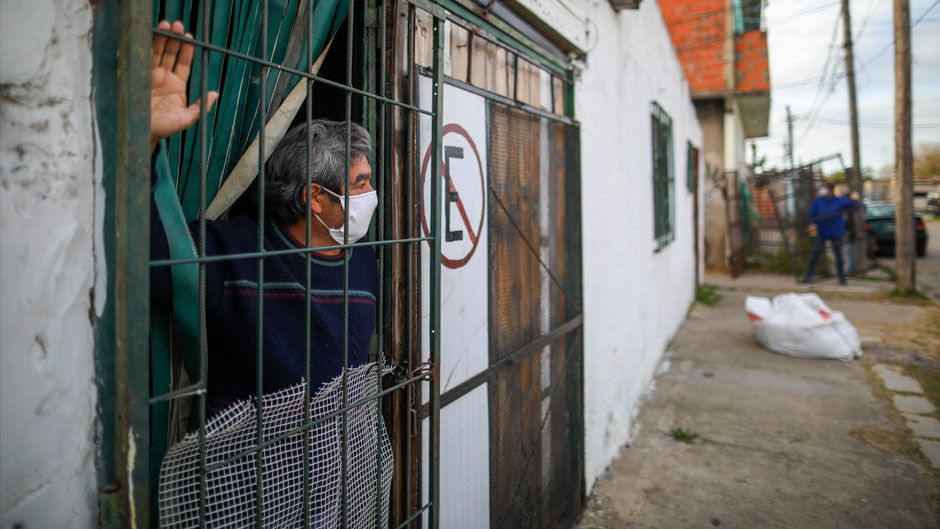Two former health ministers from Peru and Argentina detailed the socioeconomic and political contexts that have led to the pandemic’s disastrous impact on their respective countries—among the worst affected in Latin America—in a webinar on Wednesday hosted by the University of Miami Institute for Advanced Study of the Americas.
Dr. Patricia Garcia and Dr. Adolfo Rubinstein, former health ministers of Peru and Argentina, respectively, both emphasized the preexisting social and health inequities, political instability, extensive informal sector, and fragmented systems that have amplified the dire situation in “COVID-19 In the Americas: Countries and Context (Argentina and Peru).” The virtual seminar was moderated by Felicia Knaul, director of the institute.
“There’s still so much that we don’t know about the situation with COVID-19, but we have to learn from this—this is neither the first, nor the last pandemic—and hope that our analysis and understanding serves as a catalyst for much needed change in Latin America,” said Garcia, who served as Peruvian health minister from July 2016 to September 2017. “We have suffered so much owing to the contextual conditions—and these are the hardest to change.”
Peru conducted a large number of rapid tests—1.5 million—at the onset of the pandemic, but the implementation was chaotic, she said. Everyone wanted to be tested, regardless of symptoms, and the testing was done everywhere with little understanding provided of the meaning of the results, which led to a false sense of security.
“People would say ‘let’s take a test and then we’ll go and visit our relatives or have a party,’ ” Garcia said. She cited the official figure of 32,000 for the number who have died from COVID-19 but suggested the true figure was north of 70,000.
In the case of Argentina, Rubinstein cited factors that have prompted the accelerated spread of the virus and its devastating impact that include social behaviors—“as Latinos we are a very touchy society”—the high proportion of informal non-salaried work, and the lack of governmental resources and revenues to help poor people, workers, and companies.
In his presentation, “History of a Failure,” Rubinstein noted that “after almost seven months of the world’s longest quarantine—at least on paper,” Argentina has suffered economic collapse, increased unemployment, poverty, and social fatigue. The former health minister pointed to estimates indicating that 25 percent to 45 percent of Argentine children and youth have or will drop out of school as a result of the situation.
“The government underestimated the impact—they didn’t even think the pandemic would arrive—and there were serious flaws in preparation and prevention,” Rubenstein said. “And then a strict quarantine seemed to convince them that it was controlling the situation, but they later realized the failure of this measure as the only instrument to deal with the pandemic.”
According to Rubinstein, the economic desperation of the poorest socioeconomic neighborhoods in the capital Buenos Aires had prompted many to ignore or abandon the health precautions that were put in place.
Argentina ranks 31st in global population and 14th in COVID-19 related mortality. The country has registered 664,799 cases of the virus and 14,376 deaths, according to Worldometer, a website that provides real-time statistics.
Latin America continues to be hard hit by the coronavirus pandemic, and although Mexico and Brazil have had a large number of cases, Peru and Argentina have emerged as having a troubling number of outbreaks and deaths.
Knaul, a health economist and expert on Latin American health systems, praised both speakers for their comprehensive and insightful presentations.
“This is an important opportunity to be able to analyze the suffering in these two countries, both with such interesting political trajectories, and that helps to provide a regional perspective,” Knaul said.

